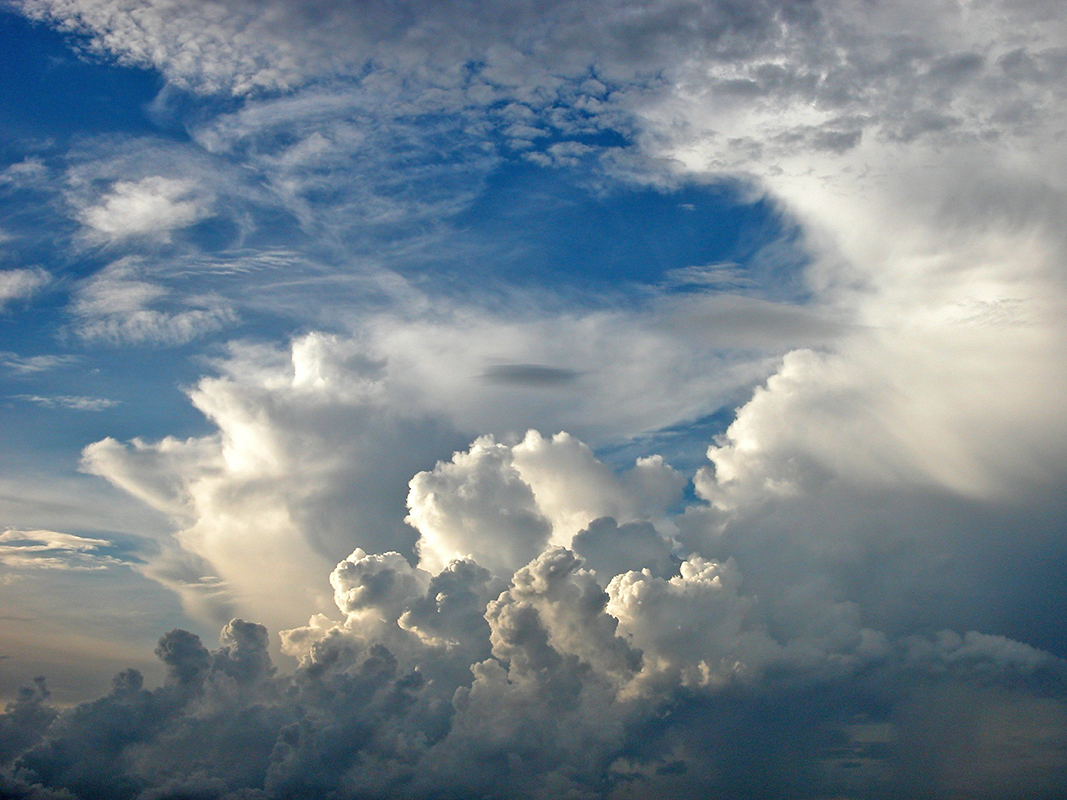Atlantic low, Azores high, frontal rain from the Mediterranean: our weather is shaped by temperature differences and currents in the lowest layer of the atmosphere. If this part of the atmosphere heats up over the long term, it also influences heatwaves in Europe and extreme precipitation. Leading an international study, researchers at the University of Graz have now been able to show consistently how observed temperatures in the troposphere and stratosphere have changed over the past four decades. Their findings are published in the current issue of the Journal of Climate.
“The troposphere, which is the lowest layer of the atmosphere where weather conditions take place, has warmed by 0.25 to 0.35 degrees per decade since the 2000s,” says Andrea Steiner from the Wegener Center for Climate and Global Change at the University of Graz, summarising one of the findings. Over the entire measurement period of the satellite era, the temperature has risen by 0.6 to 0.8 degrees. In the stratosphere, which lies above the troposphere, temperatures have been decreasing – by one to three degrees over the last 40 years. This cooling is caused by the rise in greenhouse gases, which in this layer of the atmosphere re-emit thermal radiation from the Earth into space. The change in ozone concentration also plays a role. Since the late 1990s, the cooling of the lower stratosphere has slowed as the ozone layer has begun to recover.
“The temperature trends in the atmosphere, particularly around the tropics, are even more pronounced than at the Earth’s surface,” point out Steiner and her colleague Florian Ladstädter. Changes in the temperature of these layers influence complex interactions with the Earth’s surface and the oceans, affecting large-scale circulation patterns that shape our global weather patterns. “The greenhouse gases are clearly responsible for this warming. A significant reduction in CO2 remains essential if we are to slow down climate change”, Steiner adds.
New picture
For their study, the researchers from Graz, together with international partners, evaluated and compared a range of data recorded at different altitudes from the late 1970s onwards. Sources included weather satellites, so-called GPS radio occultation measurements and ground-based measurements, with all these pieces of the puzzle coming together to form a consistent picture of atmospheric climate change. “It shows us that long-term observation data is essential for climate research,” say the researchers.
The activity on “Atmospheric Temperature Changes and their Drivers”, which Steiner co-leads, is an international collaboration within the framework of the World Climate Research Programme. The publication was produced as part of the “VERTICLIM – Atmospheric Vertical Structure and Trends in Climate Data” project sponsored by the Austrian Science Fund (FWF).
Further Information: wegcenter.uni-graz.at
